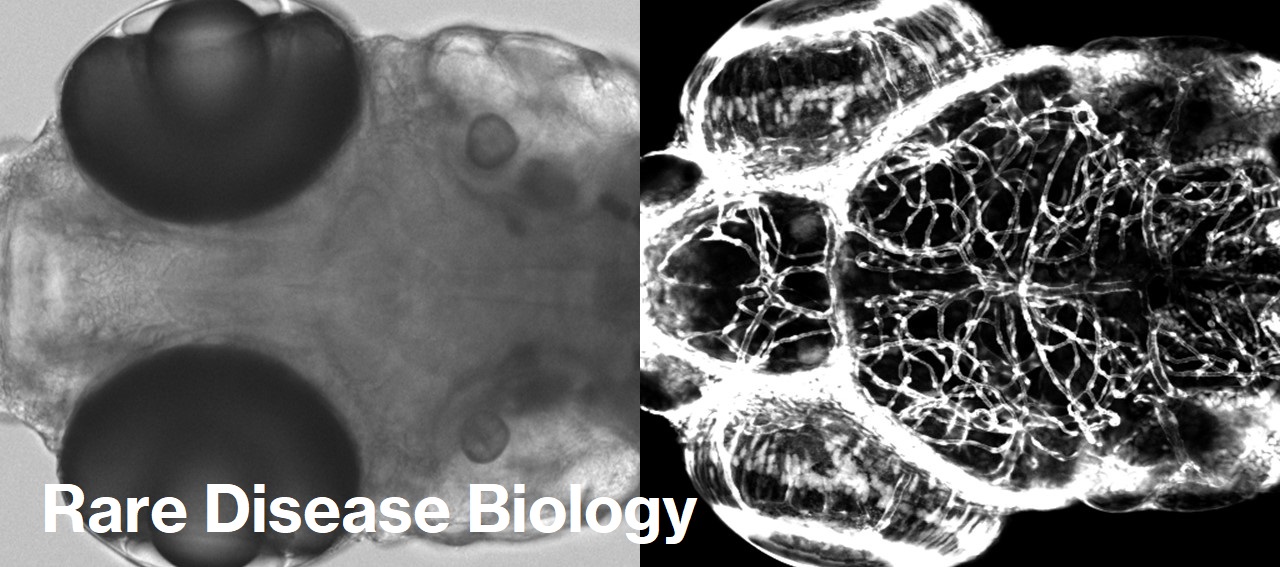Research
Our laboratory specializes in disease biology. Utilizing cutting-edge genome engineering technologies, we model the pathophysiology of various rare and intractable diseases using zebrafish. We aim to elucidate the in vivo molecular functions of disease-related molecules and understand the mechanisms in which these molecules are implicated. Ultimately, our research seeks to pave the way for therapeutic interventions and drug development.
Rare Disease

There are at least 7,000 rare diseases worldwide, affecting an estimated 350 million people (Engel PA et al., J Rare Disord. 2013; Walkley SU et al., Orphanet J Rare Dis. 2016). About half of these diseases develop during childhood. Early diagnosis and therapeutic intervention are critical in determining subsequent outcomes, as some of these diseases progress gradually, even if no apparent symptoms appear during this period.
The majority of these rare diseases are caused by genetic abnormalities. Recent advances in sequencing technology have led to a rapid increase in reports of these abnormalities. Although new genetic variants are continually being discovered, it remains difficult to verify a direct association between these variants and the development of the disease. Many treatments for these rare genetic disorders have yet to be established.



